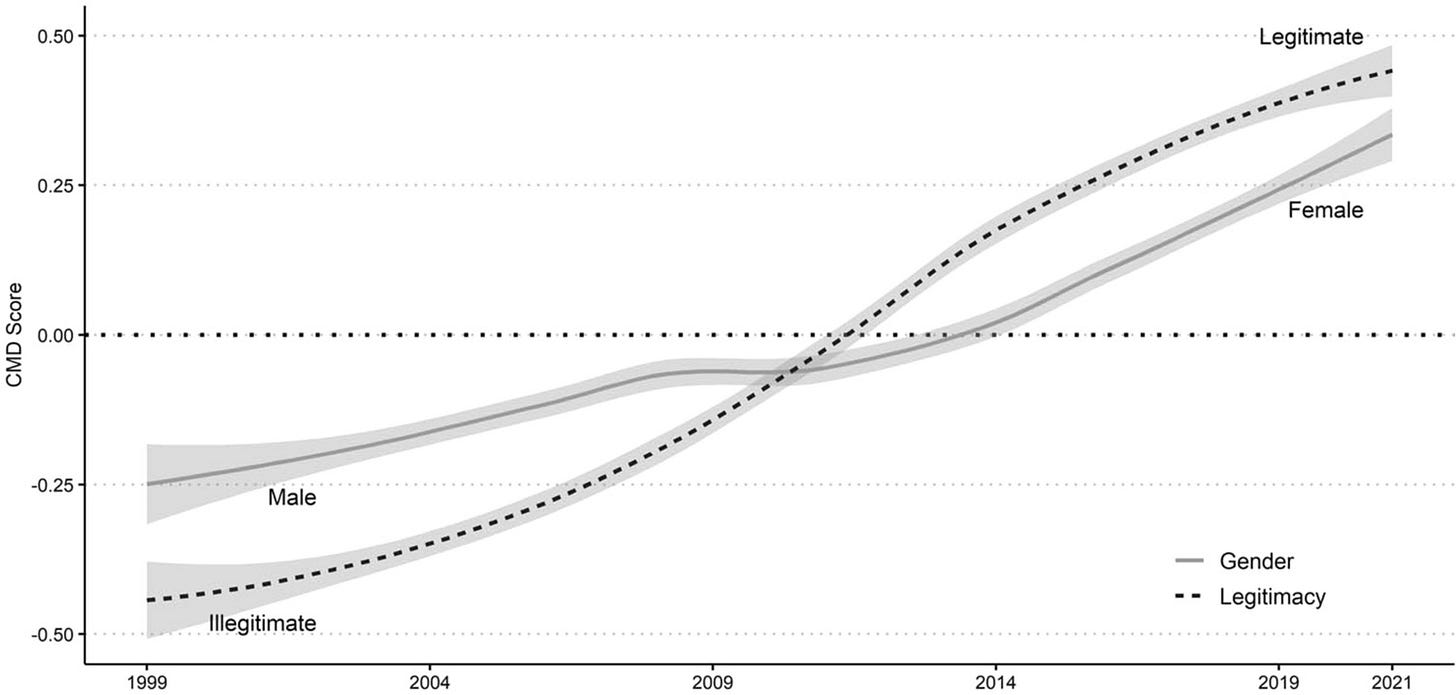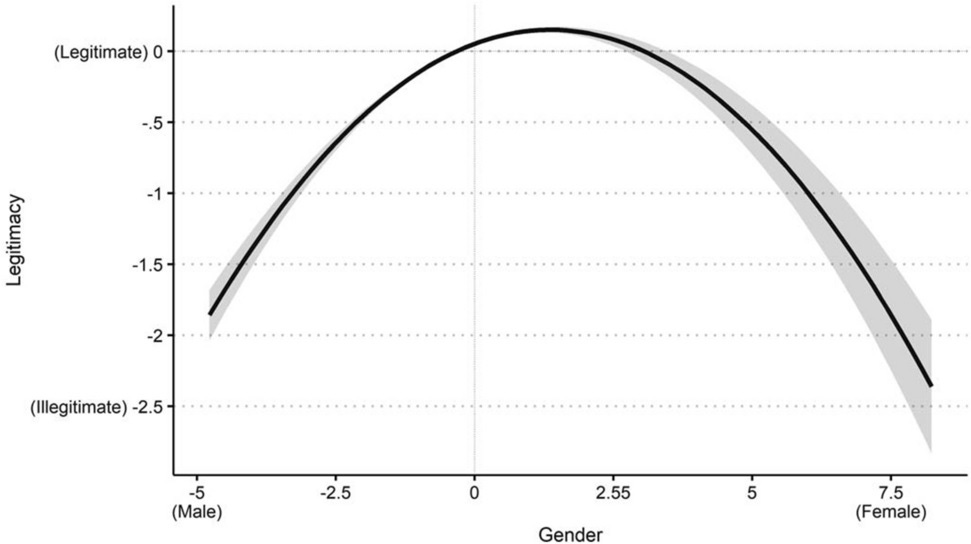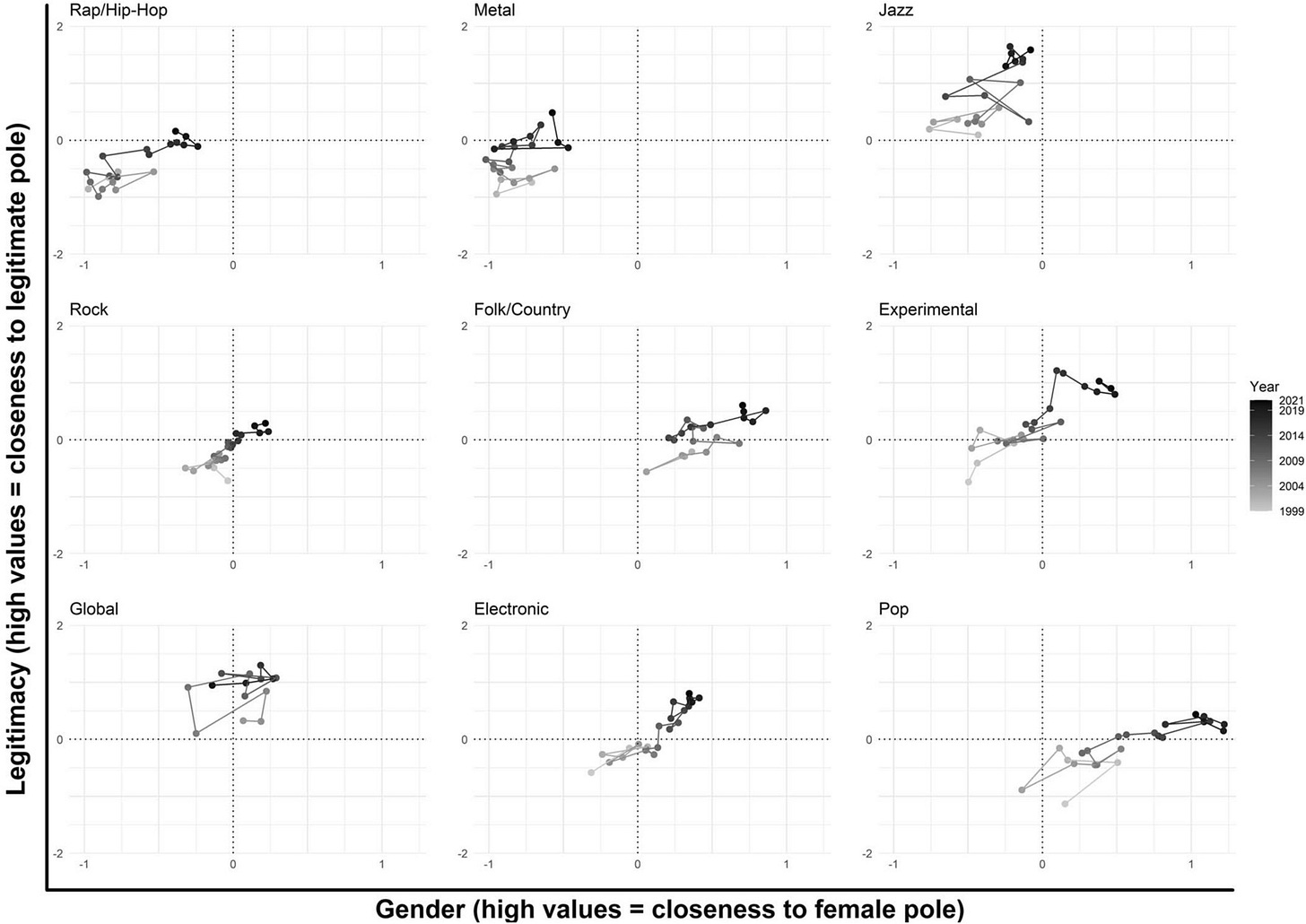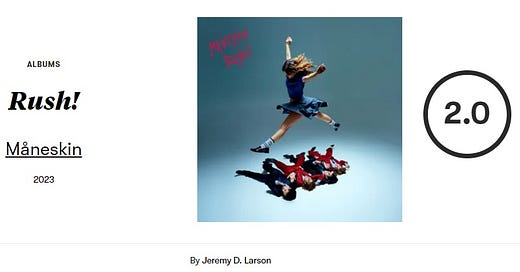Analyzing 23,992 Pitchfork reviews
And what that tells us about how perceptions on gender and cultural legitimacy in popular music have changed in 20 years.
Music reviewing in its classic guise seems to be coming to an end. At least, that’s a sensible conclusion, just looking at the recent take-over of music reviewing site Pitchfork by GQ (the magazine), resulting in a number of lay-offs.
Reviewers are important because they help shape our perceptions and evaluations of cultural products, acting as guides in the vast sea of music, film, and literature.
Even in the age of social media, where everyone can be a critic, the influence of these intermediaries persists, providing nuanced insights into the cultural fabric. See Anthony ‘the world’s busiest music nerd’ Fantano, for example. And the recent rise of TikTok reviewers.

Beyond numerical evaluations (a grade, or a bunch of stars), these intermediaries play a crucial role in shaping the narratives around music, film, and literature.
They create a framework within which people understand and assign value to cultural forms, influencing the hierarchies and canons that emerge.
In other words: they shape what we will remember later, and how we’ll remember it.
“Music critics create a framework within which people understand and assign value to cultural forms, influencing the hierarchies and canons that emerge.”
But it also influences how we think about musicians, audiences and social groups.
A classic sociological study by Amy Binder from the early 1990s exemplifies this influence.
She demonstrated how rap and metal music were portrayed in media, emphasizing their potentially harmful effects on youth but with distinct racialized nuances.
In other words: how people talk about music - the ‘discourse’ they create and use - says something about how people think about other (groups of) people.
In a recent article, Stijn Daenekindt and Julian Schaap analyzed a corpus of 23,992 music reviews (using so-called ‘word embedding models’) spanning 22 years (1999–2021) from the Pitchfork, to examine how discourse surrounding popular music's legitimacy and gender has changed over time.
They observe a significant trend in Pitchfork reviews: the discourse has shifted towards legitimating and adopting a more feminine tone.
What this means is that, first, popular music is increasingly discussed in a way that usually was reserved for classic, ‘highbrow’ art and music. So instead of popular music as mere entertainment, it is increasingly discussed as art.
In other words: reviewers increasingly emphasize attributes such as seriousness, originality, and complexity.
Second, there’s a noticeable rise of femininity in how the music is discussed. So this legitimizing discourse was accompanied by a gradual decrease in the use of masculine terms, giving way to a more inclusive and feminine language.
This means that reviewers increasingly mention women and talk about their work (indicated by words such as ‘her’, ‘she’, etc.).

What’s important here is that this does not mean that reviewers increasingly use more legitimate and feminine discourse simultaneously.
Quite the opposite: reviews that rely on a legitimate discourse to a large extent are reviews that or not particularly gendered.
On the other hand, reviews that are gendered particularly masculine or feminine are reviews that do not use a legitimacy discourse.
It appears that reviewers make a sort of trade-off when they write their review: they either use a discourse focusing on the legitimacy of music (and shun from using a gendered language) or use a gendered discourse (and shun from discussing the legitimacy of the music).

Finally, these changes are not uniform across genres.
While genres like pop and electronic align with the broader trend towards legitimization and feminization, historically male-dominated genres such as rap/hip-hop, metal, and jazz resist discursive change, maintaining a discourse rooted in masculinity and (il)legitimacy.

“While genres like pop and electronic align with the broader trend towards legitimization and feminization, historically male-dominated genres such as rap/hip-hop, metal, and jazz resist discursive change, maintaining a discourse rooted in masculinity and (il)legitimacy.”
These findings highlight a legitimizing process in mainstream genres like pop and electronic, coupled with an increasing representation of femininity, challenging entrenched gender patterns found in other cultural genres.
The intricate dance between legitimacy, masculinity/femininity, and genre distinctions offers a captivating narrative that adds valuable insights to the broader discourse on cultural consumption - and music criticism by extension.
Let’s hope that, in another 20 years, there’s a way to analyze how these discourses continue to change on TikTok and future sources of music criticism.





